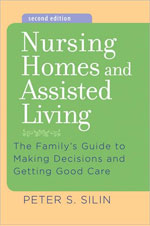Eldercare and Work Benefits
An article in the paper today about another person who ended up with eldercare responsibilities, and a workplace which was not conducive to her being able to deal with them.
" I was getting call at work during the day, and I'd have to leave because my mom was becoming violent...I was trying to balance everything at home and at work, but when my mom got sick, it was too much..."( The Province, Jan 21, 2007).
She was fired as her performance was affected.
This article, directly, and indirectly says a couple of things.
One, it says that if you think you will become a caregiver ( and at least 25% of us who are working will) you had better find a job that has employee eldercare benefits, or start advocating with your company if it doesn't.
The second thing is that you need to have an understanding of aging and eldercare. That is one of the places a Geriatric Care Manager and consultant can help. We are the ones you can call on before things become a crisis. We are the ones who can help you plan for the future. We are the ones who can help you talk to your aging relative, and help you in their care.
In dealing with your workplace:
1. Ask them what their policies are that relate to eldercare
2. Ask them what kind of training their management has in understanding this as a workplace issue.
3. How flexible are they?
4. Do they have eldercare benefits in their employee compensation package, and if they do not, will they consider them.
5. As them how they will help you manage your eldercare responsibilities if a promotion or transfer comes up.



